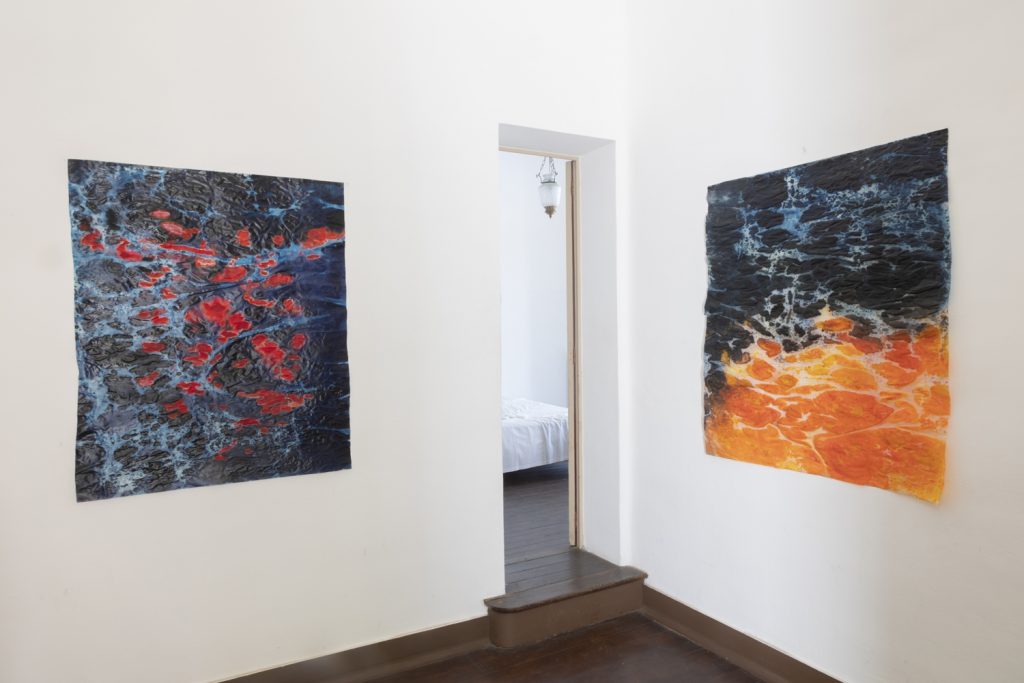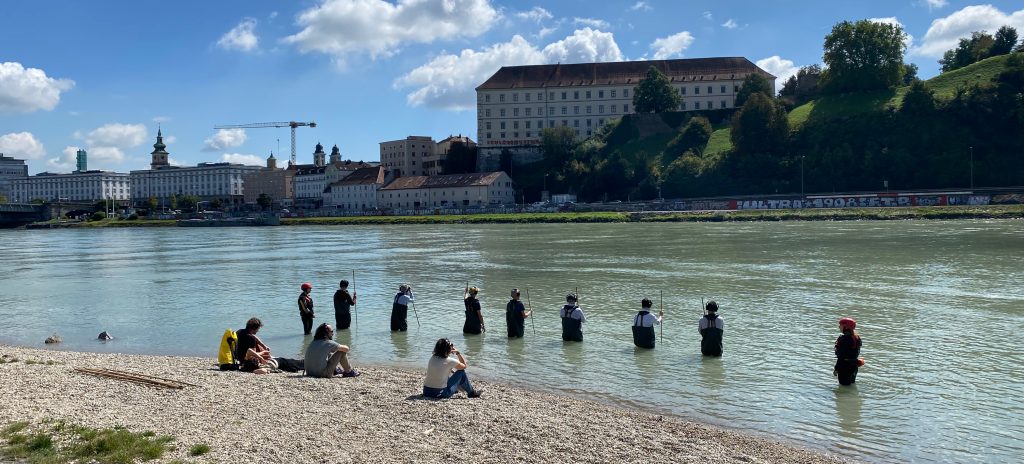Enter Corridors explores the interspatial and intertemporal connectivities across the multiple organisms of La Citotat’s complex human and non-human, natural and built environments. Taking resilience as a common thread, the project approaches the port and national park as two adjacent ecosystems whose existence and ecologies are deeply entangled using a multiscalar approach to space and time with a particular attention to the correspondence between the microscopic and the macroscopic across the distant past, the urgent present and the speculative futures.
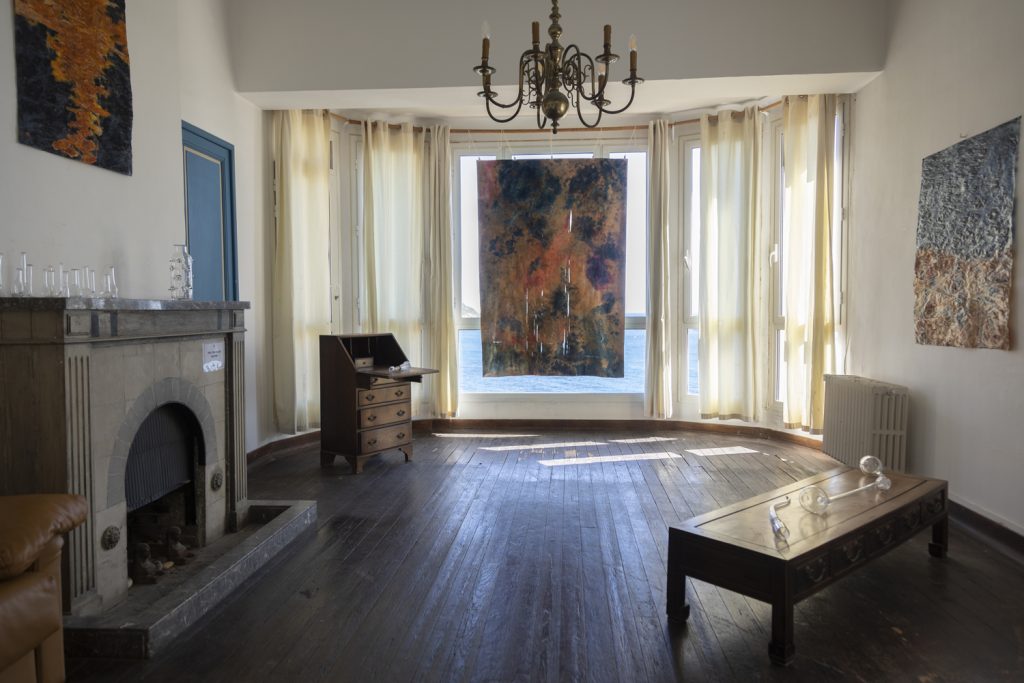
What forms of biological, geographical, historical, political connectivities already exist? Which are to be brought to the surface and which are yet to be imagined? The final outcome is 2 audiovisual pieces, an audio poem, a sculptural installation and paintings, as well as a culinary conceptual dinner.
Artist: Lara Tabet (F, Lebanese)
In collaboration with: Leila Saadna (DOP), Randa Mirza, Youmna Saba en Jessy Gemayel
Residency Support Network:
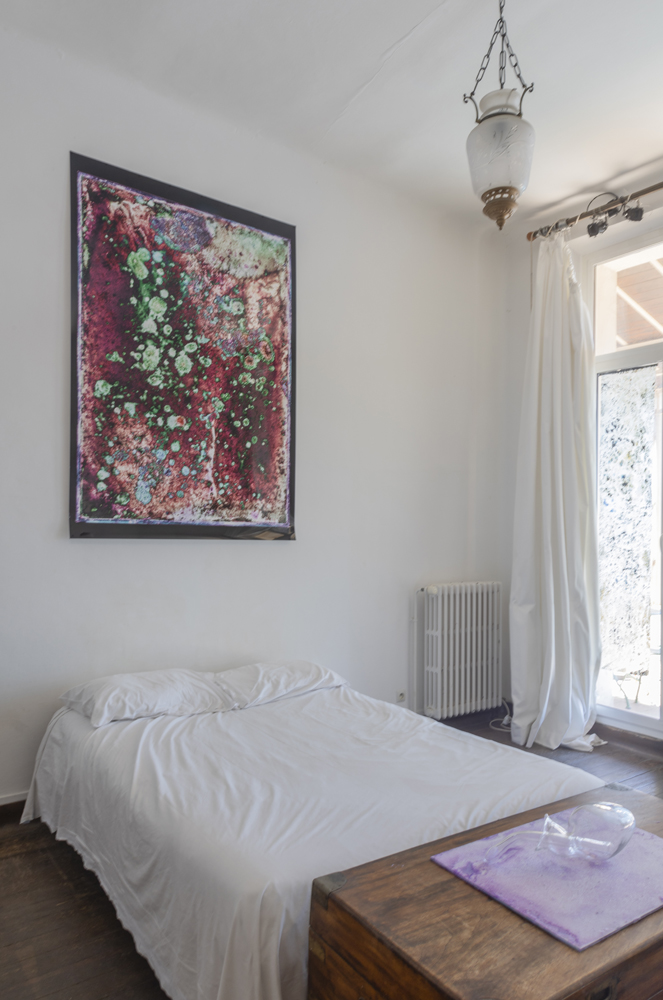
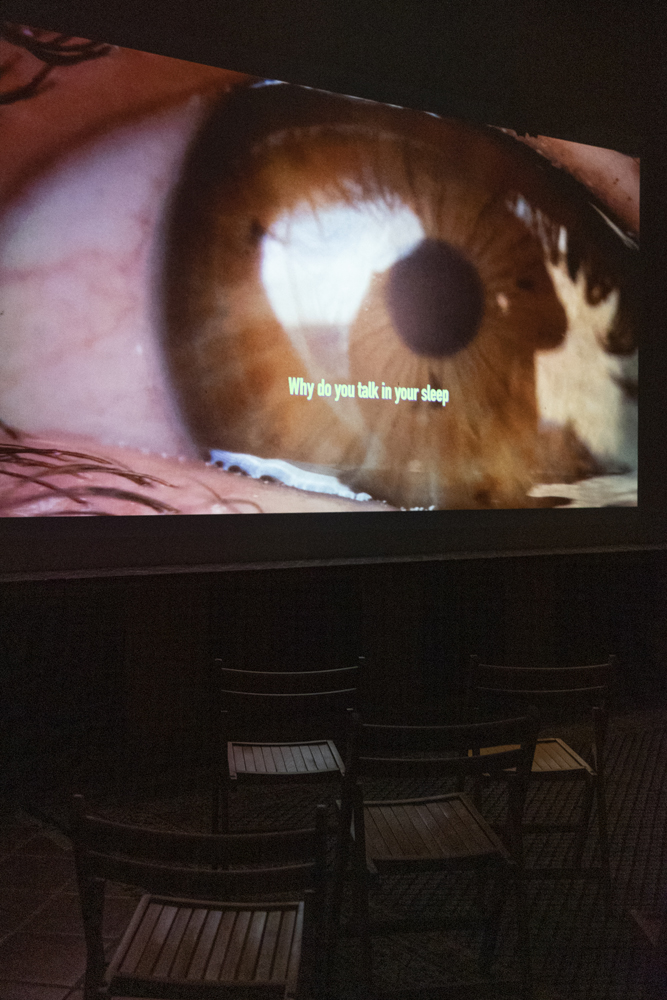
About Lara Tabet
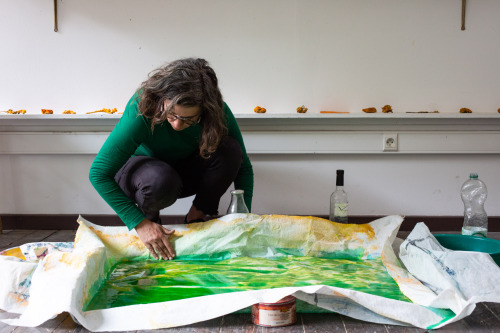
Lara Tabet is a medical doctor and trans-disciplinary artist working at the intersection of art, ecology, biomedical science and politics. She works across multiple formats including experimental photography, installation, video and bio-art. Her recent work blends research science with fiction and autobiography in relation to water, toxicity and the mutiscalar entanglements between microscopic exchanges and global flow. Her work has been featured throughout the Arab world, USA and Europe. Lara Tabet was an artist in residence at Musée Nicéphore Niépce, La Cité Internationale des arts, the National Center of Biotechnology in Madrid, La Becque, and Tara scientific boat. She received the Sursock Museum prize and grants from AFAC, Al-Mawred, DRAC and Arte East. In 2022, she was awarded the Prince Claus mentorship award for cultural and artistic response to environmental change.
Host / Region
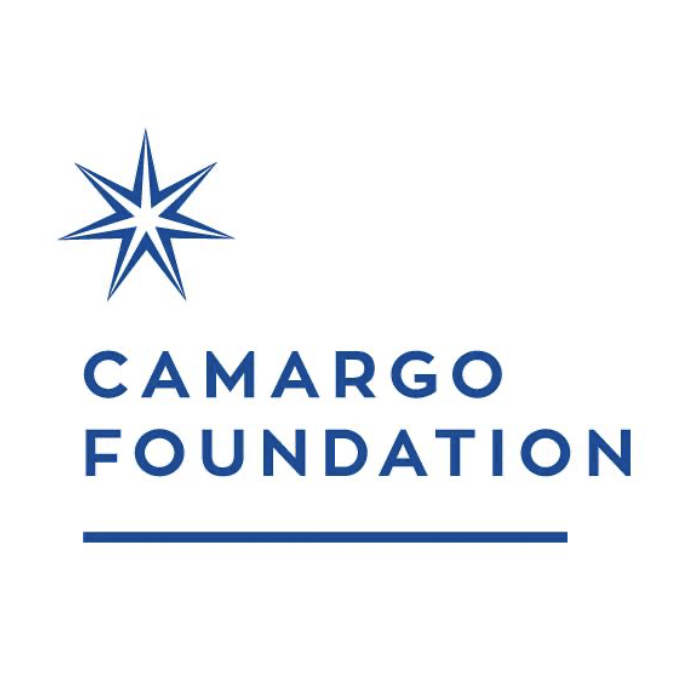
Camargo Foundation – Cassis, France
Abstract
This residency reflected on the present and future coexistence of a fast-changing, historical and industrial port cluster and Mediterranean protected coastal ecosystems. It initiated a dialogue between local ports and cities’ authorities, a national park, sea users, marine scientists and local ecological communities to evolve out of a territorialised understanding of water bodies, to work collectively towards ecological solidarity.
Keywords
ecological solidarity, anthropic impacts, interdependence, resources, deep time
Description of the regional challenge
The Camargo Foundation sits amidst the Calanques, a blend of terrestrial, marine, and archipelagic spaces where urban ports meet protected natural spaces. Since the late 18th century, the Calanques have been altered by industrial exploitation, geoengineering and extractivism, damaging ecological communities. Up until today, this toxic legacy continues to affect coastal life. Established in 2012, the Calanques National Park protects the threatened ecosystems. Spanning over 80 kilometers of coastline, it is Europe’s sole peri-urban and the Mediterranean’s only continental park. The park draws 3 million visitors yearly. With 93% marine areas, it boasts the region’s largest no-fishing zones, covering 10% of its 43,462-hectare marine core. On sea, the park’s eastern border runs up against La Ciotat harbors, once a shipbuilding hub, now a mix of economically significant activities (fishing, sailing, yacht refitting).
How is the mission S+T+ARTS driven?
Set in a present that interweaves distant pasts and futures, the residency addresses issues related to environmental mutations from the perspective of deep time. The residency at Camargo asks how ecological solidarity could be achieved between a historic, industrial port region and a protected coastal area. It looks at the interactions taking place at the interface of a port cluster and preserved marine ecosystems. Against this background and through the residency support outlined we expect artists to develop a project beyond mere concept or techno-utopia, experimenting with ecocritical practices through direct marine engagement and to incorporate diverse stakeholders’ perspectives to reflect the complexity of issues and offer future prospects.
This challenge is supported by a Local Expert Group made of oceanographers from the Marine Institute of Oceanology and the Pythéas Institute, marine archeologists and coastal and marine guard monitors from the Calanques National Park, as well as marine anthropologists from the National Museum of Natural History.
About The Project – Enter Corridors
Enter Corridors explores the interspatial and intertemporal connectivities across the multiple organisms of La Ciotat’s complex human and non-human, natural and built environmnets. Taking resilience as a common thread, the project approaches the port and national park as two adjacent ecosystems whose existence and ecologies are deeply entangled using a multiscalar approach to space and time with a particular attention to the correspondence between the microscopic and the macroscopic across the distant past, the urgent present and the speculative futures. What forms of biological, geographical, historical, political connectivities already exist? Which are to be brought to the surface and which are yet to be imagined?
Jury Statement
“At the crossroads of environmental and social issues, Lara Tabet’s project stands out for its multidisciplinary approach, its methodology and her knowledge of the region. Combining art, bacteriology and technology, the project is an innovative example of marine research and collective work. Based on a rigorous scientific methodology, the project aims to bring together the various actors in a given territory. More than a dialogue, the ambition of Lara Tabet’s work is to establish, through the prism of art, links between the scientific and political communities, civil society, and to create solidarity in the face of the major climatic challenges in this complex region.”
